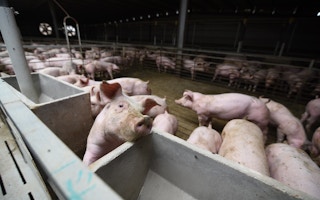Tackling rampant food loss and waste is key to feeding the world’s growing population more sustainably. Each year, about 14 per cent of food is lost before it reaches stores due to poor handling, improper storage and other causes, and significant amounts are thrown away from shops, eateries and homes.
According to the United Nations, Covid-19 pandemic has likely worsened this state of affairs. “Disruptions in supply chains, quarantine measures, and the closure of much of the hospitality industry and schools have resulted in a loss of markets for producers and distributors, making the situation even more challenging while dealing with high levels of food waste,” it said.
“At the downstream end of the supply chain, with panic buying and stockpiling by consumers, supermarkets, which are often key donors to food banks, have struggled to keep their shelves stocked, and are unable to donate food. Meanwhile, much of the food purchased by households has been discarded as food waste,” it added.
Even before the pandemic, more food producers and firms have focused on minimising their industry’s environmental footprint through various means, including cutting loss and waste.
In August 2020, global nutrition, health and sustainable living company DSM, one of the world’s leading producers of nutritional ingredients, stepped up its own efforts by launching a strategic initiative called “We Make It Possible” to make animal farming sustainable.
The initiative aims to advance the United Nations’ Sustainable Development Goals 2, 3, 12, 13 and 14, which are zero hunger, good health and well-being, responsible consumption and production, action against climate change, and sustainable use of marine resources by 2030.
To help achieve these goals, DSM is promoting its products and strategies in six areas: improving the quality of meat, milk, fish and eggs while reducing food loss and waste; improving lifetime performance of farm animals; reducing livestock emissions; making more efficient use of natural resources; reducing its reliance on marine resources; and helping tackle anti-microbial resistance.
With animal farming already accounting for 14.5 per cent of all human-derived greenhouse gas emissions, “we need to find a way to meet the increasing demand for meat and other animal-based products while keeping it within planetary boundaries,” said Achyuth Iyengar, DSM’s director of specialty solutions for animal health and nutrition in Asia Pacific.
Better and longer-lasting food
DSM’s solutions to decrease food loss and waste include vitamin E supplements that can be added to animals’ feed to prolong the shelf life of fresh meat and frozen meat. “The vitamin slows down the oxidation of the meat, its discolouration, and the development of off-flavours,” Iyengar explained.
He added that the supplements have other benefits, such as enabling the animals to cope better with heat stress and improving the nutritional value of meat and eggs.
“If you introduce vitamin E to cows’ diets, you also get healthier cows with stronger immunity and less vulnerability to infections such as mastitis. You need fewer antibiotics for the cows. This is good for the animal, farmer, consumer and environment,” he said.
The company’s vitamin D additive, called Hy-D, on the other hand, enables pigs and chickens to build stronger skeletons and have longer and healthier lives. Chickens fed Hy-D lay eggs with shells that are about four per cent thicker, reducing egg breakages during packing and transport by about 15 per cent.
“With more farmers expecting their laying hens to produce eggs up to a longer period of 100 weeks [rather than the usual production cycle of 72 weeks], you need stronger hens in order to be able to have good quality eggs for that length of time,” he said.
DSM has created other products to help farmers improve nutrient utilisation, cut back on antibiotics use and do more with less. Together with biotechnology firm Novozymes, it developed Balancius, a novel gut health eubiotic which, when added to poultry feed, removes dead cells in their guts so that they can better absorb nutrients in the feed.
Over 40 international studies conducted on Balancius showed that broiler chickens that ingest it are, on average, three per cent more efficient at converting feed to body weight gain. “You also lessen the need for antibiotic growth promoters, thus helping tackle antimicrobial resistance,” Iyengar said.
Another priority for DSM is finding ways to facilitate the use of more sustainable feed products. “In Asia, corn and soy are the typical ingredients used in animal feed, but these have fluctuating prices that have gone up tremendously, and may also need to be imported over long distances, adding to their carbon cost,” he explained.
“We are developing feed enzyme solutions that allow animals to better digest alternative sources of protein that are more easily available locally. For example, one of our feed enzymes makes palm kernel meal, a by-product of the palm oil extraction process, more digestible,” he said.
He added that improving farmed animals’ health, prolonging the freshness of animal-based products and expanding the variety of eco-friendlier feed options all contribute to lightening animal farming’s environmental burden.
He said: “We’re very local in our approach, but our overarching objective is to help farmers become more productive, improve animal nutrition, and ultimately make animal farming sustainable.”













